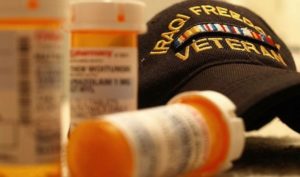Benzodiazepines (BZDs) lack efficacy for PTSD
A 2014 systematic review and meta-analysis, and at least 1 measure in every study that was reviewed in the meta-analysis (including 4 Randomized Clinical Trials of BZDs in PTSD), suggest a lack of efficacy of BZDs for PTSD.
The meta-analysis states:
PTSD-specific measures that were used demonstrated that BZDs are, at best, not significantly different from placebo or no BZD for PTSD.
The likely explanation for these findings is the development of tolerance to the effects of the drug, as well as the adverse cognitive effects associated with BZDs. The findings also indicate that BZDs appear to inadequately target PTSD pathophysiology, which could be another reason for their ineffectiveness.
Every available PTSD practice guideline also endorses benzodiazepine inefficacy in PTSD.

Benzodiazepines worsen the severity and prognosis of PTSD
In the same systematic review and meta-analysis, thirteen of the studies that were reviewed (including 2 Randomized Clinical Trials), several practice guidelines and some case reports suggested that BZDs carry the risk of worsening the severity and prognosis of PTSD.
The meta-analysis states,
All but 2 of the 13 studies that used PTSD specific measures demonstrated that BZDs are associated with worse overall severity of symptoms when compared with placebo or no BZD.
These researchers also found that people who had recently gone through traumatic experiences were two to five times more likely to develop PTSD if given benzodiazepines.
Evidence-based trauma-focused psychotherapies (e.g., prolonged exposure therapy) are the first-line of treatment for PTSD. These therapies require that patients be able to fully experience the PTSD-related anxiety in order to overcome it. When prescribed benzodiazepines, that ability to experience is impaired as benzodiazepines can cause emotional anesthesia, cognitive impairments resulting in decreased learning efficacy, and memory impairment which interferes with processing of the material learned in therapy.
Yet they’re still being prescribed in large numbers…
The trend of ignored guidelines by medical providers surrounding benzodiazepines continues when the drugs are prescribed for PTSD. Prescribing clinicians at The Department of Veteran’s Affairs are continuing to prescribe them to veterans diagnosed with post-traumatic stress disorder despite VA guidelines advising against their use for the condition. These guidelines state that BZs are not to be used as monotherapy or adjunctively for PTSD.
Veterans aren’t the only individuals diagnosed with PTSD, however, as civilians sometimes experience traumatic events too; also often being prescribed benzodiazepines by their GP or psychiatrist. Almost 1/3 of veterans with a PTSD label who are being “treated” are prescribed benzodiazepines. In the United States, benzodiazepines are estimated to be prescribed to 30-74% of patients with PTSD. Often times, this prescribing is done without any informed consent given to the veteran or civilian patient as to the risks and dangerous of long-term benzodiazepine prescription, even when used as directed.
Here, Claire speaks about how her GP prescribed her benzodiazepines for nearly two decades for a PTSD diagnosis without informed consent of the risks and harms:
The available evidence makes clear that benzodiazepines alone are being negligently prescribed for diagnoses of PTSD in the military (and in civilians). An even more alarming trend, however, is when benzodiazepines are used as one agent in polypharmacy for servicemen and women. Sometimes this polypharmacy causes sudden cardiac death (SCD) in otherwise young, previously healthy soldiers. In an explosive letter published in the European Heart Journal, Dr. Fred Baughman investigated the cases of four American soldiers who died in their sleep, in 2008.
Baughman writes:
…all in their twenties…no signs of suicide or of a multi-drug ‘overdose’…as claimed by the Inspector General of the VA…All were on the same prescribed drug cocktail, Seroquel (antipsychotic), Paxil (antidepressant) and Klonopin (benzodiazepine) [emphasis added].
Baughman’s initial inquiry suggests as many as 247 soldiers have died from cardiac arrest after ingesting these drugs.
The following video, by military veteran and W-BAD campaigner Angela, details her experience with prescribed polypharmacy (including benzodiazepines) for PTSD in the military: (13:49)
What Can Be Done?
In the United States, write to the Inspector General at the Department of Veteran’s Affairs to bring attention to this issue at:
Department of Veterans Affairs
Office of Inspector General (50)
810 Vermont Avenue, NW
Washington, DC 20420
For more information on benzodiazepines and PTSD:
https://www.benzoinfo.com/single-post/2016/09/10/Benzodiazepines-are-Contraindicated-in-Post-Traumatic-Stress-Disorder
https://www.stripes.com/news/sedatives-still-used-for-ptsd-treatment-despite-warnings-1.215000#.WR8ZAmjyvDc
http://www.upi.com/Health_News/2015/07/14/Benzodiazepines-ineffective-possibly-harmful-for-PTSD/9091436904806/
http://www.antoniocasella.eu/archipsy/Guina_Benzodiazepines_PTSD_2015.pdf
http://www.rehab.research.va.gov/jour/2012/495/contents495.html
https://www.youtube.com/watch?v=xdK7aduuU_Q